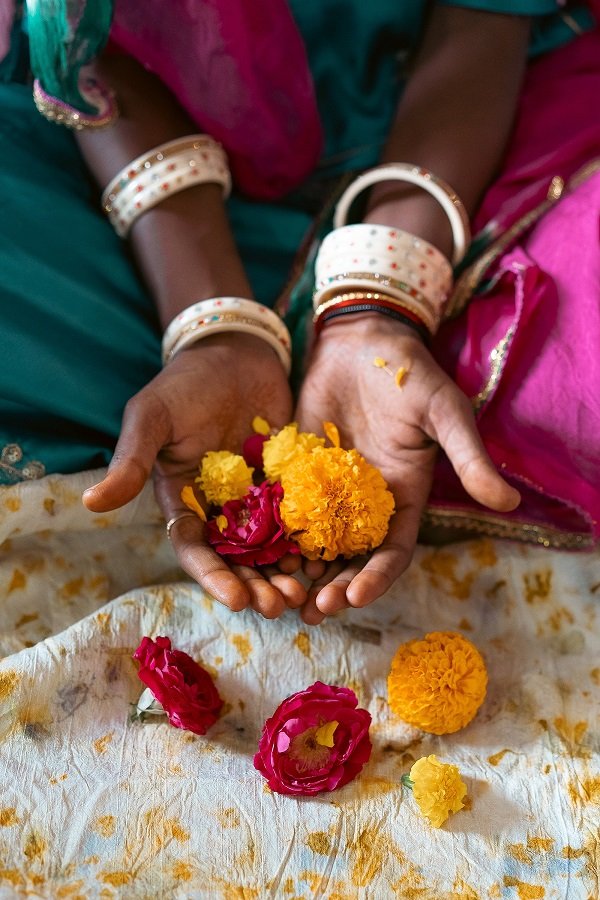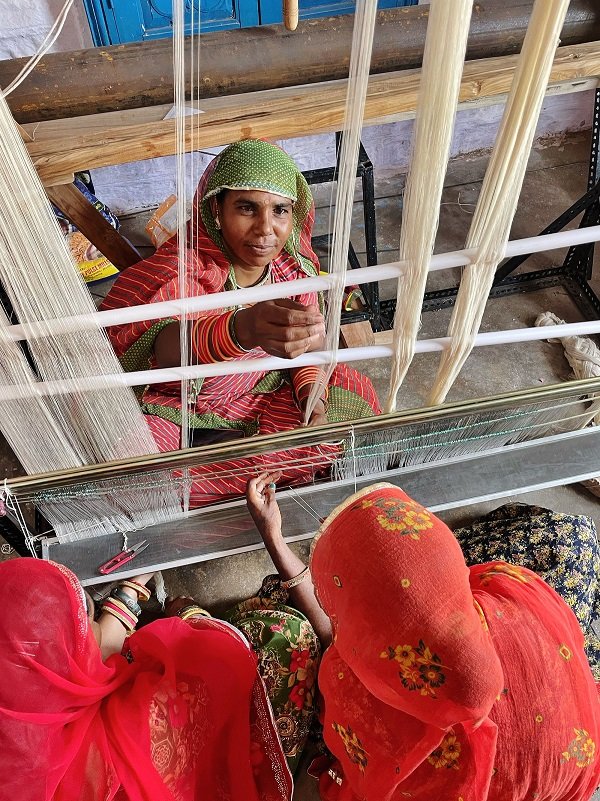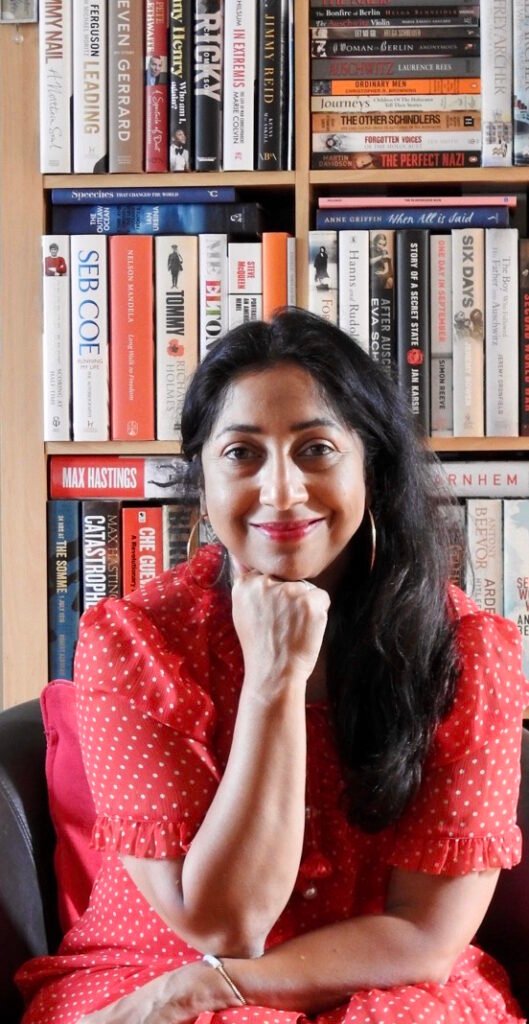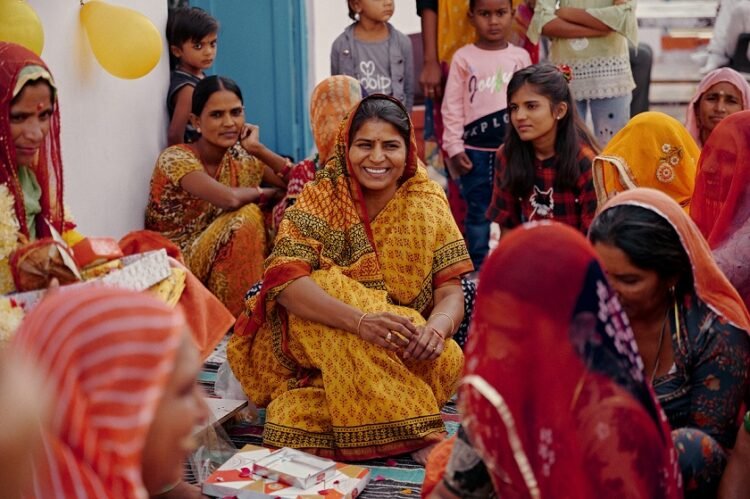Words Sangeeta Waldron
Fast fashion is a feminist issue, read on to understand why and Saheli Women is shaking things up by changing the conversation. So, something special took place on the evening of 18 July in London, UK, when Saheli Women, a female social enterprise from Rajasthan, India, unveiled its ethical fashion pieces for the Dhora Collection. Everything in the collection was stunning from the silk blouses, cotton skirts, delicate silk bags, silk tops and more…rich colours, soft silks, all purposefully made with intention to be a better alternative to fast fashion.
The atmosphere on the night was electric and the message was different from India. Saheli Women is already empowering marginalised women through its training programmes. The message founder, Madhu Vaishnav gave was strong, it wasn’t – ‘poor us, help us.’ Instead, it was – ‘look at us, look at what we are doing, look at how we are making a difference to the planet, now support us to get our message out because we all will benefit.’
Fast Fashion Is A Feminist Issue
We know that fast fashion is killing the planet. This is an industry that is the second-biggest consumer of water and is responsible for approximately 10 percent of global carbon emissions – that’s more than all international flights and maritime shipping combined – yes you read that right. However, we as consumers are to blame, as fast fashion problems are often overlooked by us. The average consumer buys 60 percent more pieces of clothing than 15 years ago, where each item is only kept for half as long. This all data from the United Nations.

However, apart from the waste, landfill issues, there’s another dark story, one that many of us probably don’t know and that is many of the garment workers that sew and make clothes for fast fashion labels, that you probably have in your wardrobes, work in what is best described as ‘modern day slavery conditions.’ Where the vast majority of workers in the fashion industry are women of colour, and this is why it is a feminist issue. It is an extremely oppressive industry impacting women across the supply chain. Where the women working in this industry are denied fair payment, safety and respect.
Sewing and making garments requires skill, but only a very, very small portion of garment workers are paid a living wage – 2 percent of them. A living wage is nothing exceptional, simply a wage that covers a person’s basic needs.
Founder, Madhu Vaishnav
This is where Saheli Women comes in, it is dedicated to investing in women by focusing on education, career opportunities, and financial independence, which will foster freedom and gender equality, making sustainability more attainable. The organisation embraces the concept of earth democracy, striving to build an inclusive, diverse, and ecologically responsible community ‘Of the women, by the women, for the women.’ Saheli comes from the Hindi word for ‘female friend’ and is about meaningful relationships.
It all began in 2015 when Madhu Vaishnav, started Saheli Women with just a few women and $100, where it has now become a strong collective of 100 economically independent women. The enterprise creates direct relationships with the artisan communities to ensure transparency, fairness, and dignity are maintained throughout its textile supply chains. It has strong partnerships with the handloom weaving communities to source fabrics that are handmade with natural fibres and dyes, to offer the option of customisation and co-creation. Saheli Women’s work is not just about creating garments, it runs deeper than that and is about continuing to share India’s cultural heritage and beautiful crafts with dignity and purpose.

There are many other things to love about this organisation. Its block printing and natural dye processes are AZO-free inks and means that it does not contain the dyes Tartrazine E102, Yellow SY E104, Yellow SY E110, Azorubine E122, Ponceau 4R E124, Allura E129, which are known to be carcinogenic, often releasing chemicals during both the production process and use. Instead, at Saheli Women they use a mix of vegetable/natural-dyes and sun-activated pigment inks.
While 50 percent of its total slow fashion production is upcycled sarees, reviving fabrics that hold stories of culture and tradition. If that wasn’t enough, it weaves its own cotton and silk fabrics on the handloom. It packages everything in reusable unbleached cotton or upcycled sari bags to minimise plastic waste.

In May 2023 the organisation became an advisory committee member of the United Nations Conscious Fashion and Lifestyle Network, with ambitions to accelerate change and increase awareness for the importance of its work.
Madhu’s Dream
This isn’t an enterprise that is going to stand still, it has big plans. Madhu’s dream is open a store in New York and last night you could feel the crowd wanting Saheli Women to be a bigger success story and that we all in the room want to Madhu’s dream come true.
Photo credits: Shivani Sharma, Instagram: @moderndayshivalry; Marco Klahold, Instagram: @marcokd
About the Author

(Authored by Sangeeta Waldron, Serendipity PR & Media Limited, UK)







